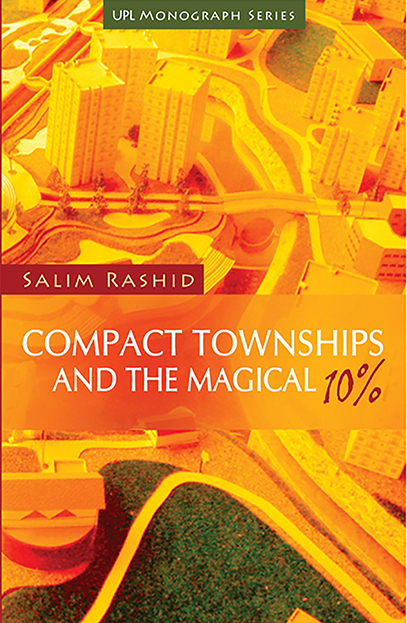- Shop
- Compact Townships and the Magical 10%
Compact Townships and the Magical 10%
https://uplbooks.com/shop/9789845061278-compact-townships-and-the-magical-10-8340 https://uplbooks.com/web/image/product.template/8340/image_1920?unique=3d813f3
(0 review)
| Language: English |
Tags :
Language
English (US)
Publisher(s)
The University Press Limited
First Published
2013
Page Length
104
Book Info
The magic of 10% economic growth suggests that the real income of an average citizen can double every decade into the foreseeable future. The primary obstacle to long term sustained growth in Bangladesh is land allocation. This monograph builds on the thoughts of many earlier Bangladeshi’s and proposes a concrete way of solving the current impasse. The proposal is called Compact Townships and seeks to build small, yet economic and ecologically sound, urban islands in rural Bangladesh. The provision of urban benefits in rural areas is the best way to enrich rural Bangladesh and preserve the prosperity of the cities.




